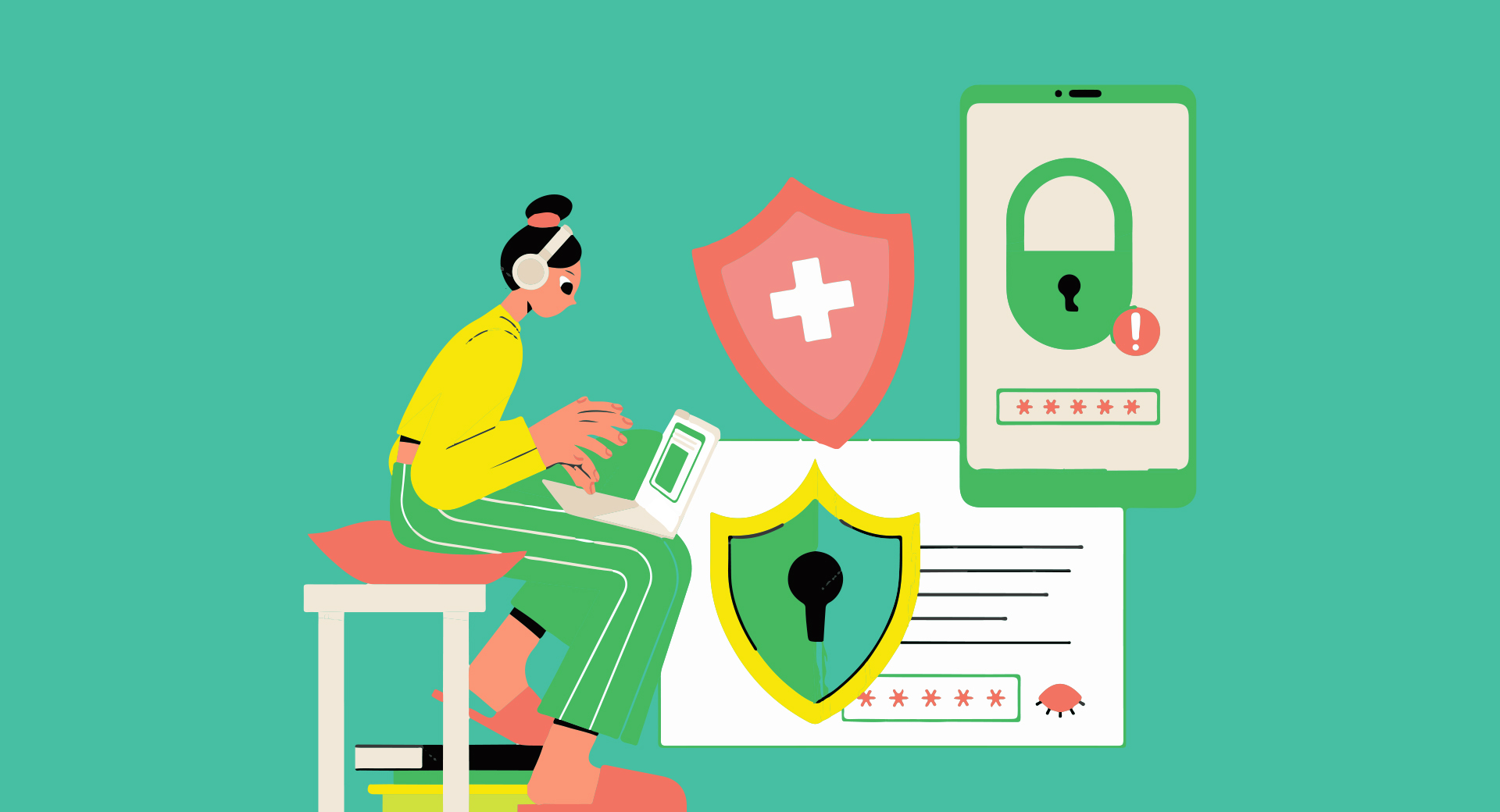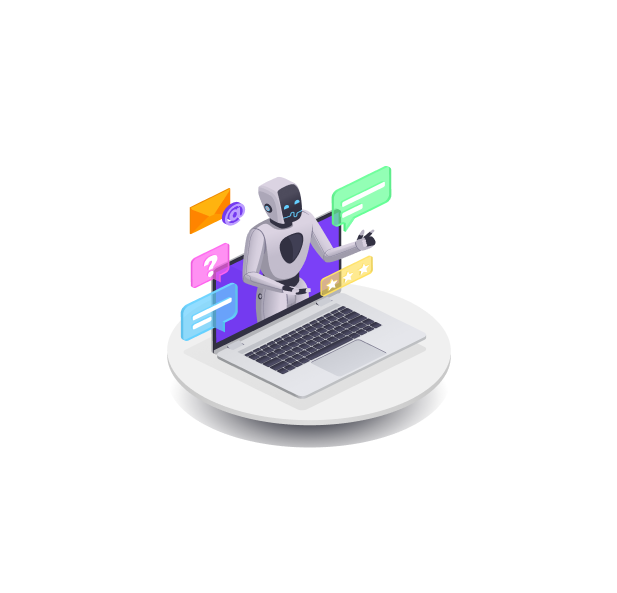The healthcare industry thrives on its ability to maintain patient privacy and confidentiality. With the digitization of health records, it has become even more important to ensure that sensitive information remains secure. Healthcare cybersecurity plays a vital role in protecting patient data from cyber threats. In this post, we will discuss the importance of cybersecurity in healthcare and the challenges that come with protecting patient privacy. We will also dive into how legacy systems are vulnerable to ransomware and other malware attacks. Furthermore, we will explore the role of Health IT in enhancing security measures and how risk assessments can aid in healthcare cybersecurity. The consequences of security breaches in healthcare can be devastating, which is why adhering to Health Insurance Portability and Accountability Act (HIPAA) regulations is essential.
Lastly, moving towards modernized healthcare can reduce risks and improve care outcomes. Join us as we explore ways to protect patient data and enhance cybersecurity measures in the healthcare industry.
Table of contents
- The Importance of Cybersecurity in Healthcare
- The Vulnerability of Legacy Systems in Healthcare
- Role of Health IT in Enhancing Security Measures
- How do Health Sector Cybersecurity Coordination Centers Aid in Data Protection?
- Adhering to the Health Insurance Portability and Accountability Act for Data Protection
- Moving Towards Modernized Healthcare: Reducing Risk and Improving Care Outcomes
- Conclusion
- Frequently Asked Questions
The Importance of Cybersecurity in Healthcare
Protecting patient data is crucial for healthcare organizations. Cybersecurity safeguards sensitive information from unauthorized access, ensuring patient privacy and confidentiality. Strong security measures are necessary to protect against cyberattacks and data breaches. Robust cybersecurity practices not only prevent financial loss but also promote patient safety and trust in the healthcare industry. The increasing reliance on medical devices and health information technology has heightened the need for effective cybersecurity measures. The Internet of Things (IoT) and the use of social media platforms have further expanded the attack surface, making it imperative for healthcare organizations to prioritize cybersecurity. With the rise of ransomware attacks and the potential financial gain for hackers, healthcare facilities must implement comprehensive risk management strategies and adhere to industry-wide cybersecurity practices. By doing so, they can effectively mitigate threats and safeguard the integrity of medical data, ultimately improving care outcomes.
Check out an article on Enhancing Healthcare with Custom Software Solutions.
Challenges in Protecting Patient Privacy & Data Security in Healthcare
The healthcare industry faces distinctive challenges when it comes to safeguarding patient privacy. Ensuring the protection of patient data requires addressing vulnerabilities within information technology systems. Cybercriminals specifically target healthcare organizations due to the valuable patient information they possess. Breaches in confidentiality can lead to financial loss and reputational damage for these organizations. Therefore, ongoing efforts are necessary to address the evolving threats and continuously protect patient privacy. By implementing robust security measures, such as risk management and the utilization of health industry cybersecurity practices, the healthcare industry can effectively combat these challenges and ensure the utmost privacy and security of patient information.
The Vulnerability of Legacy Systems in Healthcare
Legacy systems in healthcare present a significant cybersecurity risk. Outdated software and hardware often have known vulnerabilities, making them prime targets for cybercriminals. Upgrading these legacy systems is essential for strengthening data security in the healthcare industry. By modernizing the infrastructure, healthcare organizations can enhance protection against cyber threats and safeguard sensitive medical data. Hackers exploit the weaknesses of legacy systems to gain unauthorized access to patient health records and financial information. To combat this, healthcare facilities must prioritize the adoption of secure and up-to-date technologies. With the increasing interconnectedness of medical devices and the Internet of things, the risk of cyberattacks has become even more prevalent. Therefore, it is crucial for healthcare providers to prioritize information security and implement robust cybersecurity practices to protect patients’ privacy and maintain trust in the healthcare industry.
How Ransomware and Other Malware Threaten Healthcare Data
Ransomware attacks can have a significant impact on the security of healthcare data. These attacks pose a serious threat to patient records and can disrupt the delivery of care. It is crucial for healthcare organizations to proactively defend against ransomware and other malware threats. Implementing preventive measures such as regular backups can help mitigate the impact of malware and provide a way to recover data in case of an attack. Additionally, cybersecurity training and awareness programs play a vital role in combating malware threats. By staying informed about the latest cybersecurity practices and being vigilant, healthcare organizations can better protect the sensitive medical data they hold.
Role of Health IT in Enhancing Security Measures
Health IT plays a crucial role in strengthening cybersecurity in the healthcare industry. By implementing advanced technologies, healthcare organizations can detect and prevent security breaches, protecting patient data from unauthorized access. Health IT solutions enable real-time monitoring and protection of sensitive medical information, ensuring its integrity and confidentiality. Artificial intelligence and machine learning algorithms enhance the capabilities of threat detection, enabling proactive identification of potential risks. Collaboration between IT professionals and healthcare providers is essential for effective data security, as it allows for the implementation of comprehensive security measures and ensures that best practices are followed. In addition, by leveraging the power of health IT, the healthcare industry can significantly enhance its security measures and safeguard patient data.
Here’s an article on AI in Healthcare, that talks about how healthcare has transformed with the help of AI technology.
Significance of Risk Assessments in Healthcare Cybersecurity
Regular risk assessments play a crucial role in ensuring the cybersecurity of healthcare organizations. By conducting these assessments, vulnerabilities can be identified, enabling healthcare providers to prioritize security measures and allocate resources effectively. This proactive approach allows for the mitigation of potential threats before they can compromise patient data or disrupt operations. Additionally, continuous monitoring and evaluation further enhance data protection strategies, enabling healthcare organizations to stay ahead of emerging cyber threats. Risk assessments also support compliance with industry regulations and standards, such as the Health Insurance Portability and Accountability Act (HIPAA). Additionally, by regularly assessing risks, healthcare providers can strengthen their overall security posture and safeguard sensitive information from the increasing number of hackers and cybercriminals in the healthcare industry.
How do Health Sector Cybersecurity Coordination Centers Aid in Data Protection?
Health sector cybersecurity coordination centers play a vital role in safeguarding healthcare data. They offer guidance, and support, and facilitate information sharing among stakeholders. Collaborative efforts help share best practices and threat intelligence, enabling timely incident management. Proactive engagement with these centers enhances overall data protection. Furthermore, these centers can help coordinate incident response efforts, provide expertise and resources for data protection measures, and develop mitigation plans. Healthcare organizations that utilize these centers can protect their patients’ information from cyberattacks while still complying with HIPAA regulations.
What are the Consequences of Security Breaches in Healthcare?
Security breaches in healthcare can have severe consequences. Breached patient data can lead to identity theft and financial fraud, compromising patient care. Legal implications and regulatory fines can impact healthcare organizations, while reputational damage erodes patient trust. Moreover, a breach can also create public health emergencies as sensitive medical information is released to the public. Healthcare organizations must perform regular vulnerability assessments and penetration testing to identify system weaknesses. They should also train employees on proper cybersecurity practices and have incident response plans in case of a breach. Furthermore, healthcare organizations should stay informed on the latest cybersecurity threats and trends to stay ahead of potential attacks. By taking these additional steps, they can further protect themselves against cyberattacks and safeguard patient data.
Are you curious about the transformation of healthcare and how it is adapting to this new era? Here’s an article talking about Digital Transformation in Healthcare.
Adhering to the Health Insurance Portability and Accountability Act for Data Protection
Adhering to the Health Insurance Portability and Accountability Act (HIPAA) regulations is crucial for protecting patient data in healthcare. HIPAA establishes standards for the privacy and security of health information, ensuring patient confidentiality and integrity. Compliance with these regulations is essential to avoid penalties and legal repercussions. Healthcare facilities need to protect medical data from hackers and unauthorized access. HIPAA has rules to follow like information security, health records, and accountability to safeguard patient data. These rules help make healthcare secure and trusted.
Moving Towards Modernized Healthcare: Reducing Risk and Improving Care Outcomes
Embracing modernized healthcare technologies not only reduces cybersecurity risks but also enhances patient data protection and privacy. By implementing advanced security measures, healthcare organizations can safeguard medical data from potential breaches. This improved cybersecurity ultimately supports seamless care delivery, leading to positive patient outcomes. Investing in digital transformation further strengthens the resilience of the healthcare industry against cyber threats, ensuring the safety and integrity of sensitive information. Collaboration between stakeholders, including healthcare facilities, government agencies like the HHS, and industry experts, drives innovation and enhances data security. By staying ahead of hackers and constantly evolving cyber threats, the health industry can leverage technologies like the Internet of Things and health information technology to protect patient health records and insurance information. By doing so, healthcare facilities can reduce the risk of financial gain for hackers and provide patients with the peace of mind they deserve.
Conclusion
Healthcare cybersecurity is of utmost importance in today’s digital age. Healthcare organizations must protect patient data from cyber threats. Old technology in healthcare is vulnerable to attacks. New security measures are necessary to safeguard patient data. Regular risk assessments and following HIPAA regulations help ensure data safety. Health sector cybersecurity coordination centers play a crucial role in enhancing data security and mitigating risks. By staying updated on the latest cybersecurity trends and implementing robust security measures, healthcare organizations can reduce the risk of security breaches and improve care outcomes.
Share this important information on social media to create awareness and promote a secure healthcare environment, and visit the website to learn more about how to create awareness and promote a secure healthcare environment through important information about healthcare cybersecurity and protecting patient data.
Frequently Asked Questions
What are some common cybersecurity threats to patient data in healthcare?
Phishing attacks and ransomware are common cybersecurity threats to patient data in healthcare, posing risks of data breaches and financial damage. Insider threats, such as unauthorized access or sharing of patient data by employees, also pose a significant risk. Implementing strong security measures and regular employee training can help protect patient data.
How can healthcare providers protect patient data from cyberattacks?
To protect patient data from cyber attacks, healthcare providers can utilize various measures. Encryption can safeguard sensitive information, while firewalls and antivirus software help prevent unauthorized access. Regular staff training on cybersecurity best practices reduces the risk of human error. Conducting regular security risk assessments and updating protocols to address vulnerabilities.
What are the consequences of a data breach in healthcare?
The consequences of a data breach in healthcare can be severe. Patient information can be exposed or stolen, leading to identity theft and financial fraud. Healthcare providers may face legal and financial repercussions for failing to protect patient data. Additionally, a data breach can damage the reputation and trust of the healthcare provider.




[…] article on Healthcare Cybersecurity: Protecting Patient Data might interest […]
[…] article on Healthcare Cybersecurity: Protecting Patient Data might interest […]
[…] Check out an article on Healthcare Cybersecurity: Protecting Patient Data. […]
[…] Check an article on Healthcare Cybersecurity: Protecting Patient Data. […]
[…] Check out an article on Healthcare Cybersecurity: Protecting Patient Data! […]